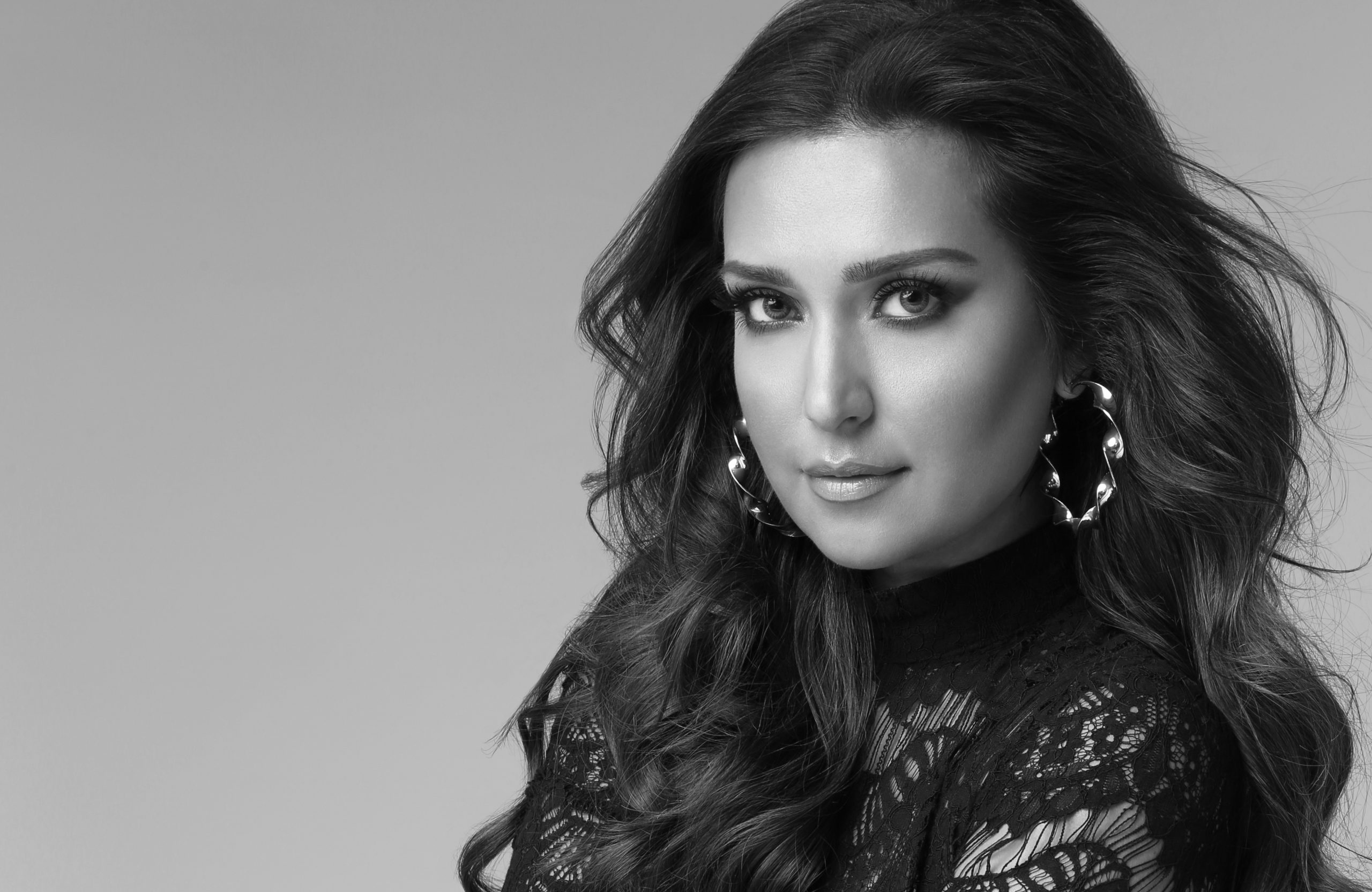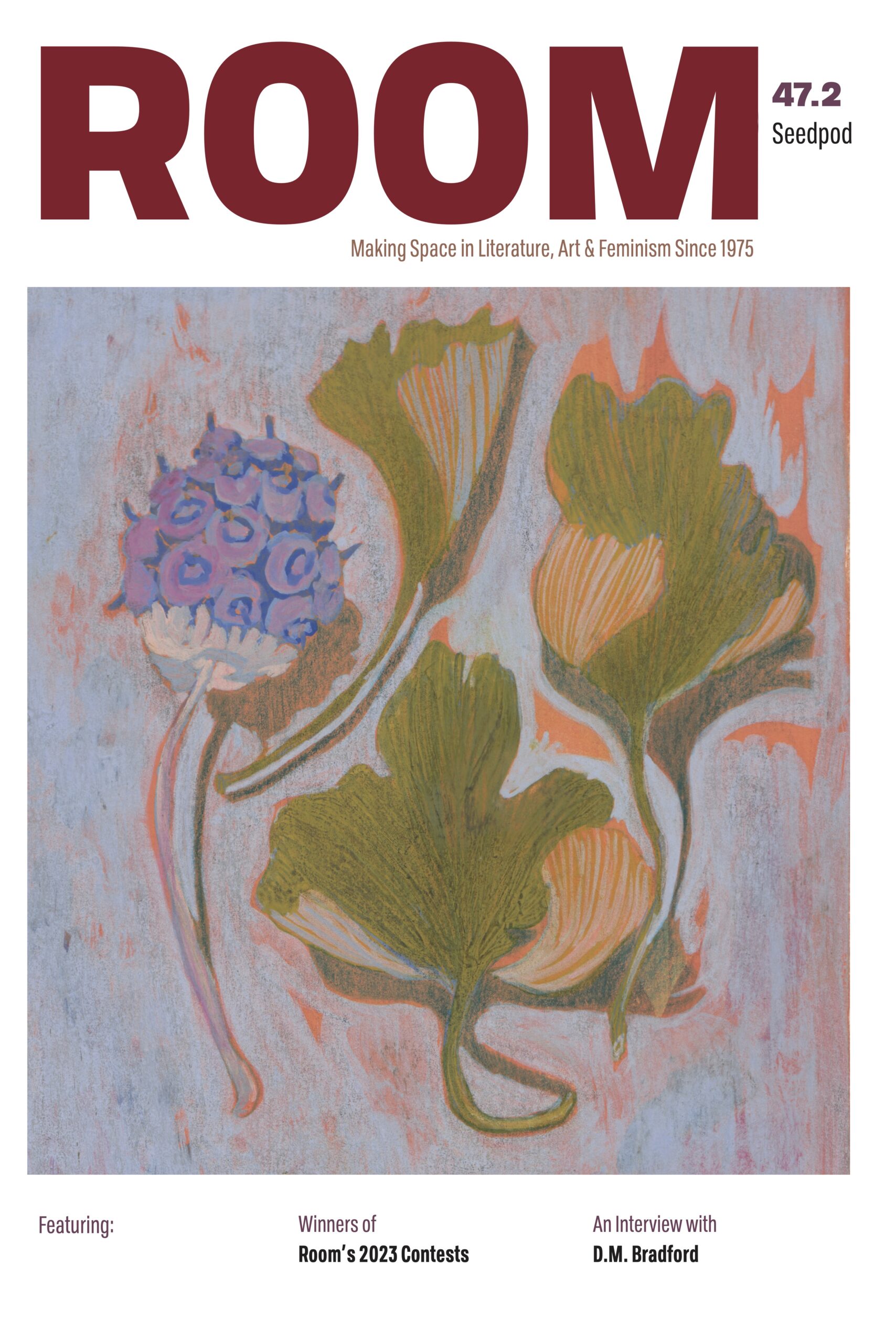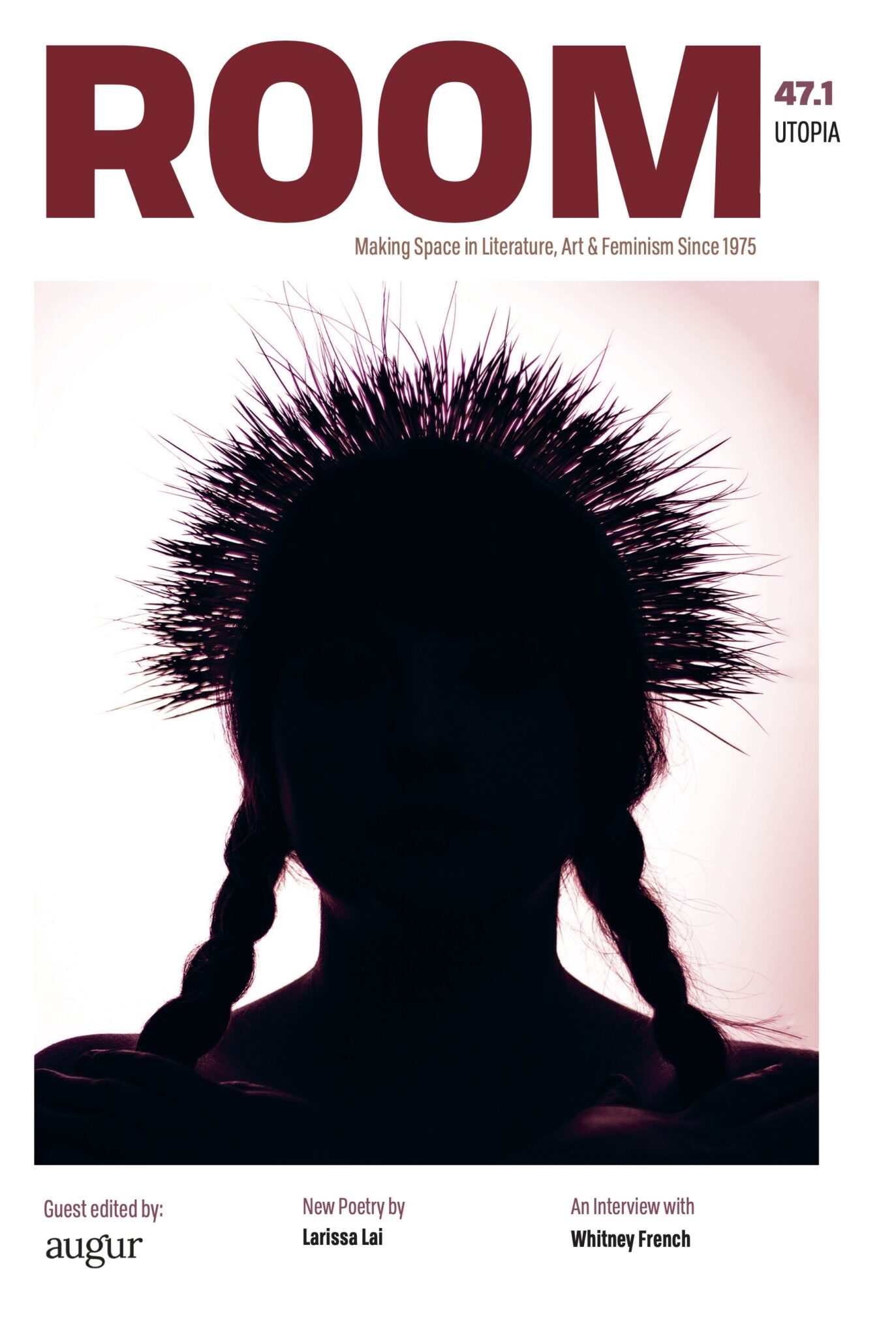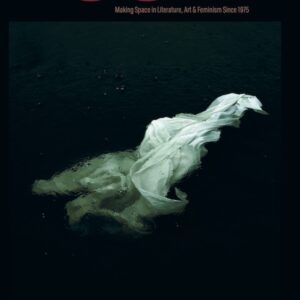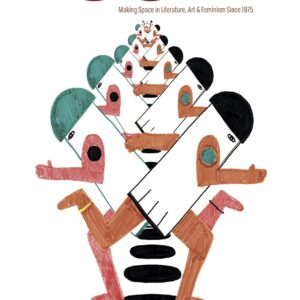This episode features Mozhdah Jamalzadah, an Afghan-Canadian pop-singer and talk show host deemed “Afghanistan’s Oprah” by Time Magazine. In this interview, Mozhdah chats with host Mica about what it’s like to prioritize social issues over your own safety (Mozhdah was forced to leave Afghanistan in 2012 because her talk show, which tackled taboo subjects like divorce and domestic abuse, made her vulnerable to extremist threats) and how her singing career was inspired by her political beliefs as opposed to an inherent love of music.
A podcast about Canadian literature, feminism, and everything in between. New episodes published on the 15th of every month. Hosted by Mica Lemiski.
Episode Nine: Mozhdah Jamalzadah: Risking Her Life for Feminism
This episode features Mozhdah Jamalzadah, an Afghan-Canadian pop-singer and talk show host deemed “Afghanistan’s Oprah” by Time Magazine. In this interview, Mozhdah chats with host Mica about what it’s like to prioritize social issues over your own safety (Mozhdah was forced to leave Afghanistan in 2012 because her talk show, which tackled taboo subjects like divorce and domestic abuse, made her vulnerable to extremist threats) and how her singing career was inspired by her political beliefs as opposed to an inherent love of music.
TRANSCRIPTION
Mica: This podcast was recorded, edited, and is probably being listened to on the unceded traditional territory of the Musqueam, Squamish, and Tsleil-Waututh Nations.
[theme music]
If you think women are interesting and literary arts are a pretty cool thing
Well come cozy up with the Fainting Couch Feminists
We’ve got poets (woo!), we’ve got artists (ow!), we’ve got short story writers, musicians, memorists
All cozied up with the Fainting Couch Feminists
Ooh, ooh, we’ve got Room (get it?)
For you, ooh.
No matter who, what, or how you identify, baby
We’d like to intelligently discuss your point of view.
We’re hysterical!
Mica: Hey, this is Mica Lemiski, your host of Fainting Couch Feminists. I would like to start this episode with a small ponder. I often wonder how far I’d go, and what I’d be willing to risk, to stand up for what’s right. Sometimes I feel like a coward. When there’s conflict, I tend to back down and shrink away from it because if I ignore the conflict, it sometimes feels like it’s not happening—and that’s easier. I was rarely, if ever, the kid in school to stand up to bullies or call them on their shit. I rationalized my failure to intervene as “I don’t do drama,” but I think that that was just an excuse for not wanting to take a social risk. For being lazy and unempathetic. But how do we define protest? I don’t always think it means waving a sign or marching through the city, though these can be powerful things. At this moment, I’m not literally fighting to defend my cause—whatever that is. I mean, I think by cause, I mean feminism, kindness, love, acceptance, honesty. But my hope is that by working and writing and doing this podcast, I’m still attempting to be subversive. Change a mind or two. Protest against “the Man,” whoever that is. But just a bit more . . . quietly. I think that there’s this idea that if we ever want to make real change or participate in social activism, we must put a target on our back. We must be loud. We must risk something. Is that always true? I don’t know. Maybe. My guest today, Mozhdah Jamalzadah, could probably answer to this better than almost anyone. At five years old and after her father’s life was threatened, Mozhdah and her family escaped their home country of Afghanistan, eventually making it to Canada as refugees. Mozhdah grew up primarily in Vancouver, but remained passionate about Afghan culture and political issues, especially as they pertained to women and their rights. She began to make music—pop music—hoping this was the best way to get Afghan people to really listen. They did. In Afghanistan, she’s a celebrity now. She’s toured all over the world and even sung at the Whitehouse for Barak and Michelle Obama. And get this: she has been deemed the Oprah of Afghanistan by Time magazine, CNN . . . pretty much all western media outlets. But why is she called the Oprah of Afghanistan? I’ll let her tell you.
[music]
Mica: Oh! And you hear that song that’s playing right now? So, that’s actually Mozhdah’s first hit single. It is called “Afghan Girl,” or in Farsi, “Dukhtare Afghan,” and that is actually the song she sang at the Whitehouse. I’m going to let that play for a little bit and then get into the interview.
[music]
Mica: Welcome to The Fainting Couch Mozhdah, I’m so delighted to have you on the show today.
Mozhdah: Thank you so much for having me. This is awesome.
Mica: Okay, well I was just telling you about this, but we like to start the show with a game—I guess it’s sort of a game—called “What Makes You Faint,” since this is The Fainting Couch Feminist. This can either be a story of when you literally passed out, or you could talk about something that you’re particularly excited about to the point where, you know, it makes you feel faint.
Mozhdah: Okay, well I’ve never actually fainted, I’m not a fainter type, but what does get me really worked up and excited is when I see cat videos. [laughs] I’m just like, “oh my god that’s so cute.” And I go crazy over cats [ ] and I have to catch myself. Every time I see them, I jump in and give them rubs and hugs and stuff. So yeah, that’s my thing. Or any animal videos. They’re just so cuddly and cute.
Mica: Well, I’m the same, but with dogs. For some reason, dogs give me more than cats
Mozhdah: So, you’re a dog person.
Mica: I am. I do identify as a dog person. [laughs] What are your cats’ names?
Mozhdah: Lucky and Simba.
Mica: And did you ever, like, hold Simba up?
Mozhdah: Oh yeah, all the time. [laughs] And the reason that I called him Simba is, you know, right when I saw him, [he] was acting like he was it, you know? He was one of those personalities. I was like, “you’re definitely a Simba.” [laughs]
Mica: Well, for me, I think what is making me feel faint is a new artist I discovered—like I discovered him. I didn’t discover him. [laughs] I found out about him today. His name’s Jeremy Dutcher and I was listening to CBC “Q,” the podcast, and he was their featured musician. He’s an Indigenous musician and composer, he’s like classically trained in opera and piano, and he has this new album where he combines archival recordings of his ancestors’ music with his own, like, classical pop piano. It’s so, so beautiful. It’s really creative and especially poignant because he is singing in a language, it’s the Wolostoq language, and I hope I’m pronouncing that correctly, but it’s a language that only about a hundred people speak.
Mozhdah: That’s intense
Micah: Yeah, it’s really intense. It’s beautiful. I was making lunch and I heard this music come on and I just stopped, you know? It was so affecting
Mozhdah: Yeah, I got the chills just hearing you talk about this and the way that he’s put his ancestors’ sounds with his own current [mix]. That’s so cool
Mica: The fusion is amazing. Anyway, Jeremy Dutcher, if you get a chance to look him up.
Mozhdah: I will look him up, right after this.
Mica: Well, Mozhdah, since you have such and amazing story with so many events to go over, I’m hoping we can just start by summarizing your journey as a musician, as a talk-show host, but also as a person more broadly. Perhaps from the point where you first came to Canada when you were a kid. Can you talk a bit about that?
Mozhdah: Yeah. My family was forced to flee because of the war. [ ] It was around the end of the Soviet regime, and my father’s life was in danger and they were after him. Different political parties and different reasons. So basically, my dad, he went into hiding for about three days, or four days. We didn’t even know where he was. I was five at the time. I had two little brothers. One was just newly born, and my mom had no idea where my dad was, and they weren’t going to tell her. Basically, one of his best friends came to the house and said, you know, “Pack your belongings, just minimal, whatever you can, and just leave everything else.” We were supposed to meet at a certain place and take off from there. My dad had arranged everything for us.
Mica: Wow.
Mozhdah: So, we met with him, and um, it was quite frightening going through that mountainous terrain. Above us, you could see the fighter jets [ ] going over, and if they suspected anybody escaping, then they did shoot at them. We were in the back of this lorry truck. It was, you know, half broken down, and we were just barely holding on with all of the, shaking and all that stuff. It was really difficult, especially with my six-month-old baby brother. And you know, with my mom having to wear a burka, and hold him. I got these burlap sacks filled with whatever we could take with us and we were heading to the Pakistan border. Eventually . . . exactly after a year of being in Pakistan—Islamabad, we moved to Ontario.
Mica: Wow.
Mozhdah: So, my dad applied for refugee status and then, of course, Canada was very welcoming, at that time, with immigrants. And, so, we came here. We were in Oshawa, Ontario for about three years. It was cold. [laughs] Oh my god, I went from, like, Afghanistan. The weather there is decent. You’ve got the four seasons, a couple, anyways. And then we go to Pakistan, and it’s hot. But I love hot weather, so I was totally fine with that. Then I came to Ontario and I’m just like, “Oh my god, what did I do to deserve this? Maybe God’s punishing me.” [laughs] I was this stick-thin little girl, and I was like, holding on to the fences to try and walk home from school. And it was so windy and cold . . . it was torture. Also, not knowing the language and things like that. It was very challenging. And of course, everybody being white, and I’m like, the only brown person there. I felt so much like an alien or an outsider. And it was like, “what’s going on here?” Although my first experience in the first school I went to, they were amazing kids. I mean, usually kids tend to be weirded out by somebody different, but they were so welcoming. They were so sweet. So, I had a really great experience. I found my first best friend there. Her name was Jenny, and we had a really great experience. But after three years, my dad’s asthma was getting really bad because of the weather and the cold. So, the doctor suggested he move to the west coast
Mica: Oh wow!
Mozhdah: So that’s what got us into Vancouver. [laughs] Our prescription was Vancouver, like, “great doctor, thank you doctor!”
Mica: [laughs]
Mozhdah: I mean, because of this doctor who recommended the west coast, we moved here. And I have been so happy ever since. It’s such a beautiful city. You know I grew up here, so this is my home.
Mica: That’s great. So, you had a big hit song in, I think it was 2009?
Mozhdah: It was 2008 and 2009. That’s the song that let me into the Whitehouse
Mica: Right!
Mozhdah: And it was a song about women. It was called “Afghan Girl.” In Farsi, it’s “Dukhtare Afghan.”
Mica: And what drew you to pursue music? So, you know, you’re growing up in Vancouver . . .
Mozhdah: . . . music for me was like, so, so far in the distance.[ ] I didn’t even know how to tune a radio until I was in the 7th grade, when I asked my mom. You know, I was just trying to fit in the crowd.
Mica: Right.
Mozhdah: Because everyone was talking about music, and I’m like, “what is this music thing?” [laughs]
Mozhdah: It was never like, you know, “I [am] six years old and I want to be a singer when I grow up.” That never happened to me. It was all about books and studying and I was a nerd. I was like, in the Science Olympics in grade six.
Mica: Oh wow! [laughs]
Mozhdah: And then I was in these journalism programs and all of these other things where they would like, select one, two, or three people out of the whole school. I was always in one of those.
Mica: Yeah?
Mozhdah: Yeah. Competing with other schools and stuff, and that was my thing. I had an Einstein T-shirt that I used to love, and all that stuff. In order to fit in, I started [listening to music] because I would never be able to continue conversations with people while they were talking about all these bands and all these songs, and stuff. But then, what was happening in Afghanistan, you know? [We were] just constantly watching the news, watching what was happening to the women. I’m sure everyone’s heard, you know, what happened to women during that time, and is still continuing. [ ] So, when I used to see women being executed in the soccer stadium—and there was one that haunted me so much—that kind of [made me want] to do something for these women. Because my parents were always watch[ing] with so much sadness. So much pain with what was happening to the people of Afghanistan, especially the women and the children. Women being abused left and right and not being able to leave the house. My parents used to always say “Wow, that was a close call. Because we could [be] there right now. You could have been one of those girls.” And it just hit me. I was like, “Holy cow,” and I’ve always been extra sensitive when it comes to human rights. Just being there for someone who is a victim in any situation. So I just kept thinking “What do I do [ ] to kind of give back. To help?” Eventually, it was like a lightbulb. It was like, “wait, when you’re listening to the radio, you’re singing along with songs. The lyrics, you get lyrics.” But like, you see a presidential speech, and you forget about it the next day. Or you don’t even pay attention to half of it because it’s so boring. So, what could I do to attract a lot of attention from a large audience, right? So, it’s like, music. “Use music and the media as a platform to kind of send a message across.” And so that’s why I started vocal lessons. [laughs] I could care less about music. I had other intentions, you know?
Mica: How old were you when you started vocal lessons?
Mozhdah: Sixteen.
Mica: Wow!
Mozhdah: Yeah.
Mica: Amazing, and how much later was “Afghan Girl,” the song?
Mozhdah: Oh my gosh, I did, like, a full three years of vocal lessons until I could actually sing something. And then I went to opera. The B.C. Conservatory of Music for opera lessons for another couple months . . . and just trying out different things to see how far I [was] with the music thing. And then, eventually, we released my first song in 2007. And that was a patriotic song that was for Afghan men. Because what I realized, at that time, is that there were no Afghan female singers out there. Except I did find one—she was very conservative, standing on a stage, just very still, like a statue. She had a head-scarf on. She was holding the mic and she wasn’t moving. And it was like, that’s still so much oppression. Even that image of that woman standing there. The way that she [was]. Just being so scared, looking down, not looking up. I was like, “no, I want to show people something else.” And so I came out with my first song with this red suit, you know, with a skirt and kind of a sleeveless shirt and this chapeau hat and um . . . started dancing. It was a very patriotic and very upbeat song. And everyone’s like, “Whoa, what’s this?”
[laughs]
And I didn’t know [ ] to what extent people had become . . . conservative in Afghanistan. And so, when I released this, it just, like, all of a sudden, went viral.
Mica: Right. In Afghanistan, while you’re here in Canada?
Mozhdah: We posted it on YouTube, and next thing you know, it got five hundred hits by the time I drove back from my producer’s house. And he was like, “Look on YouTube, you just got 500 hits,” and I was like, “What, how are they finding me? My name is so difficult to spell.” [laughs] But that’s basically how it happened. And my dad . . . um . . . there was an acid attack. My dad at that time was working with the NATO forces in the Canadian army, back in Kandahar. He heard about these poor girls who were walking home from school, and they were attacked by the Taliban. They had acid thrown on their faces. I saw these images, these horrific images, and so did my dad. And at that time, my dad was flying back from Afghanistan, so he witnessed this on the news and everywhere. He was in so much pain because my dad’s a feminist. He’s the one that I’m kind of following. When he came back, he had written this beautiful, beautiful poem as a reminder of how much women have participated in society. Even in the past, like, we have a warrior named Malalai and all these female poets and everyone that has contributed so much to the history of Afghanistan. Females. He had written beautifully about that. So, I turned that into a song. And he kind of just came to my room [and said] “What happened just broke my heart, and I wrote this for these girls. And I hope you can do something with it.” And I turned it into a song.” And I didn’t know that I could compose a song. I just did it and then . . . just the way that it resonated with the audience. And Afghans in general. I couldn’t believe the men, you know, how much it impacted the men and the women and everyone. And the youth. Everyone loved the song. We couldn’t believe the extent that it affected people. But it was the lyrics. I saw men tearing up when I was performing it in different shows and concerts and things like that. [ ]
Mica: So did you go on tour of Afghanistan? Or where were these men that were tearing up?
Mozhdah: No, it was all over the place. I was performing in Germany. There are Afghans everywhere around the world. Yeah, and I remember my first performance in Germany. I actually witnessed men tearing up and just really, really, giving me credit for that. There were other places all over Europe where I performed it, and all over North America. I got really great feedback and of course I went back to Afghanistan, and I performed it there. Everybody loved it and then, you know at the Whitehouse.
Mica: Wow! That’s amazing. And so, then you transitioned into talk-show hosting. That’s interesting, right? The Mozhdah Show, how did that come about?
Mozhdah: Well at that time when I sang “Afghan Girl,” I saw what an impact it had on everyone and I was like “my gosh, this is a four-minute clip.” It was all I could do at the time, but imagine if I could have, you know, a platform where I’m talking to people and I’m actually getting their attention that way. And I’m like “well . . . I’m going to give myself ten years to get to the level where I can actually have a talk show of my own.” And within, like, eight months, I had an offer. It wasn’t actually an offer for a talk show. I got an offer from a new television station in Kabul that launched, and they wanted me to be the host of Afghanistan’s Got Talent.
Mica: Oh!
Mozhdah: So, they had bought the rights to this show and they were preparing, and they were just so excited. So was I, and I went back there, and my mom came with me. And first I had to beg my parents to let me go back. And then I finally convinced them when I went back—my mom, she was sitting at the table with everybody in the conference room. And she goes, “Listen, I am not going to let my daughter come here and risk her life and be removed from her safety and comfort and her family and friends. Just so she can host some nonsense show like Afghanistan’s Got Talent.” [laughs] She’s like, “If my daughter’s going to be here, it better be worth, you know, everyone’s time. Especially hers.” And then she goes, “Do you guys know Oprah?” [laughs] And there were non-Afghans there. A few British people and an American CEO from Bellingham, so they were like, “well yeah, definitely Oprah.” But then all these Afghans were like, “Who’s Oprah?” So [my mom] gives them this DVD case and she’s just like, “okay, this is your homework. Watch Oprah. Let’s get back together tomorrow, and, you know, see what you think because I want a similar concept to the Oprah show. If she’s going to be here, she’s going to help people, she’s going to make a difference.” It was like “Oh, go Mom!”
Mica: Wow! That’s fantastic.
Mozhdah: [My mom] is my manager, and there’s a reason why she is. So, they watched the DVD, they came back and they were like, “Okay, you know what? We’re going to drop Afghanistan’s Got Talent and we’re going to make The Mozhdah Show.”
Mica: So, they made your show instead of Afghanistan’s Got Talent. That’s amazing because the “Got Talent” series is like a proven formula to get viewers.
Mozhdah: Yeah, they were very smart, the way that they approached it. It actually became the second biggest TV show in the country.
Mica: No way! Well, you know, you’ve been called the Oprah of Afghanistan by many, many platforms. And I’m wondering, like, this obviously is not a name you’ve given yourself . . .
Mozhdah: . . . Absolutely not. [laughs]
Mica: But I’m wondering, like, how do you feel about this comparison? Do you find it complimentary? Or is it frustrating to be contextualized in such a Western-centric way?
Mozhdah: It is definitely a compliment. It’s an honour to get that title, even though I truly know that I don’t deserve that because the level that Oprah is at and the work that she’s done over so many years, you can’t just [ ] give somebody else that kind of title within such a short time. So, I don’t think that I deserve that. But the reason that they said the Oprah of Afghanistan is because it’s easier for people to get the idea of what my show is about. Because in the beginning, the entire concept of The Mozhdah Show was we were trying to make it similar to the Oprah show. Because the Oprah show airs in a lot of countries, but it does not air in Afghanistan. And this is a country that needs something like that, you know? Speaking about issues, taboo topics, and difficult subjects and things like that. And so, when I was talking to newspapers and magazines
In 2010, it just became this thing. These media outlets—I remember the first one must have been The Vancouver Sun, and like Global Television and CNN and then it went from there. Because we were talking about how similar we made it to the Oprah show. And then I did get a chance to go on the Oprah show as well.
Mica: Did you really?
Mozhdah: Yeah, her producers wanted to surprise her. The Oprah show surprise spectacular and it was last minute
Mica: You met Oprah?
Mozhdah: Yes, I did.
Mica: Oh my god. [laughs] Wow! How was she?
Mozhdah: I think she’s just a little bit above human, like when I felt her presence, when I was actually standing in front of her, she was hugging me, and I was just . . . the energy. Her energy is just so powerful. It’s so different from anything I’ve experienced. So, I decided to think that she is not . . . just human. [laughs] She might have a little bit more in her.
Mica: How long did The Mozhdah Show go, because didn’t the Canadian Embassy recommend you leave the country because it did get pretty, you know, controversial and you were getting threats and . . . can you talk a bit about that?
Mozhdah: Well, my dad was my advisor, so was my uncle. And they just wanted to make sure that I didn’t, you know, cross the line too much. So, in the beginning, my dad was like “don’t go straight into women’s issues. [ ] Start with children. Child abuse.” Child abuse is huge there, it’s like over ninety percent of children get abused in one way or another. And then he’s like “slowly start to talk about the family and how [child abuse] impacts the family. And of course [talk about] domestic violence and how that impacts the children in the family [ ]and what you can do instead. Things like that. We started slowly, you know, getting into the hearts of people, and then into their minds. So that was the idea. And then we got to a point where I really pushed it. You know, you just get comfortable. You’re like, “I’m getting away with all this.” [laughs] I started talking about divorce and things because at that time, I was witness to a lot of suicide attempts by young brides, and they were setting themselves on fire. Yeah. The culture is so, so dominantly . . . you have to be very careful what your neighbours think of you. What other people think of you. These people are constantly paying attention to what others think of them and not the wellbeing of their own family members. So, they actually sacrifice the wellbeing of their own family members, their own daughters and their own wives. just to prove a point. Or follow that culture that’s become normal now. So that’s what I was trying to get at. Take care of your own family and don’t worry about what other people around you think. Cultures are created by humans. They can also be altered and changed by humans, right? So [ ] I started talking about divorce and things like that. If it gets really bad, you should actually consider divorce before your daughter tries to burn herself to death. I was angry, I was very angry. And even my uncle said, “You’re pushing this now because they’re not going to accept it.” And so, I was like, “I’m going to do what I have to do. That’s what I came here for.” And I did that and all of a sudden there was this huge rumour that I got killed—and not just killed. It said that they had severed my nose and my ears, uh . . . shaved my head and severed my head. All kinds of torturous things and I thought I don’t want to go down this way. I mean Afghanistan, I know the risks of being here. I know that I could die in an explosion or something. But I don’t want to be made an example by these extremists that I’m fighting. That’s when the Canadian Embassy got involved and said, “You need to leave.” I was actually home in Vancouver visiting my family when this rumour started.
Mica: Wow! Did you find out about it online or . . .
Mozhdah: No. I got phone calls from the owner, the chairman of the TV station where I was working at that time. All of a sudden, he sent me an email with the subject line Urgent. I opened it and he said, “Where are you?” and I said, “You know I’m home, I took two weeks off to visit my family.” “Well there’s a really terrible rumour right now. Somebody just called our news office and said that this is the hospital and we have her body. There’s bullet holes and she’s been shot dead.” He goes, “that’s what freaked me out is that they called our news team.” [ ] And the company I worked for, Azizi Bank, they also called and they were very concerned. My dad was on the phone, and so all these calls and emails happened within the same day. And I was just in my room, and my mom comes in with the phone in her hand and goes, “Your dad called. There was this really terrible rumour going on.” And I was like “Mom, there’s always rumours, this is no big deal.” But next thing you know, they’re planning my funeral across the board. I went back to London and I switched my SIM card back to my Afghanistan one, and all of a sudden, [I got] all these text messages and voice mails from the Canadian Embassy, saying “Urgent. Please call us right away.” I called and said “What’s going on?” They said that their intelligence believe[d] I [was] under direct threat. They were like, “where are you, where are you right now?” And I said, “I’m in London, I’m in transit and coming back to Afghanistan,” and they were like, “please just turn back around to Vancouver right now.” I said, “I can’t, I have my whole life there.” And they said, “well, we suggest you pack up your whole life within the next 24 hours and get out. We’re not responsible for what’s going to happen. You’ve been warned.” I was like, “holy cow.” So when I went back, the company I worked for—Azizi Bank—they where like, “you need to leave. no matter what level of security we provide you, it’s not going to be enough. You need to just lie low right now.” So everybody—my family, everyone—said you need to leave. So it was really tough.
Mica: And how long have you been back from Afghanistan?
Mozhdah: Since 2012. But I do go. I have converst there, I have show, I make TV appearances all the time. I don’t actually live there and host my own show, but we’re in talks with the TV station to actually continue it again, within the next few months.
Mica: Wow, are you excited, nervous?
Mozhdah: I’m nervous. I’m not as excited and optimistic as I was the first time around.
Mica: Well I can’t imagine, but it’s just disillusionment to the extreme.
Mozhdah: Well you become traumatized. It’s not the same anymore.
Mica: Besides when you’re over in Afghanistan, do you do stuff here to interact with people in Afghanistan, like I guess you have a huge Instagram following—236,000 people I think. Are most of those people here in the west or are they Afghan people?
Mozhdah: So Facebook and Instagram are different. On Instagram, a lot of them are from outside Afghanistan because Instagram is still not that big over there. Facebook, on the other hand, I have close to 500,000 followers on Facebook, and a lot of them are actually from Afghanistan. So I can see the difference in comments too, like, between the western Afghans and the Afghans inside Afghanistan, who are on Facebook. I see the difference, it’s very interesting. So, yeah, through social media is a great way to [connect with people overseas] and through my record company, I’m signed with Ethnobeast, their an indie record company located at the CBC building, I go there and sometimes we do Facebook live YouTube clips where I’m discussing certain topics and things like that. So I do reach an audience on social media on some level, and its very impactful, it’s very powerful, social media. Still it’s not the same as having the millions of viewers at one time on a major TV station. They’re TV stations and their shows—like my show, I mean the level of professionalism, it’s not that different from an American TV station or show. They had all the cameras, and lightings, and studio sets, anbd everything just brought in from outside Afghanistan. And they had put it all together with a lot of money involved and invested in there. They do a really good job there with TV.
Mica: Back to the bit about social media. I imagine your relationship with social media would be kind of complicated because on one hand it is an amazing way for you to reach people globally, but then it’s also a platform for people to troll you or make threats, like how do you navigate those difficult grounds?
Mozhdah: I used to get a lot of threats when I first started out, because I think when you’re new they try to get to you at that time and make you quit. And it almost did get me to quit. In the beginning, people were very harsh, very mean. They were saying, “someone should put a bullet in her head, someone should kill her before she goes to far, she’s a disgrace to our culture, our nation, our religion—all that stuff. So those things really freaked me out at first. I was like, “oh my gosh these people want me dead.” And then of course my mom, you know. I was like, “mom I can’t do this anymore.” I was sitting on my bed, crying, and I was like, “these people are really mean; they’re vicious.” And I had just started out, and my parents had already prepared me a little bit for this. And my mom just sat next to me and said, “you know what, they do this to everybody who tries to make a difference, who tries to do something, you have to stand up against these people and you have to be strong and you have to have a thick skin. You have to not let these threats and these people bother you, if you have a goal and you want to reach people.” That minute is when I decided I wasn’t going to let these trolls and these vicious comments stop me from progressing. So, once I did, the stronger I became, the stronger my following became, so instead of me defending myself, if there was one person who would write a negative comment, there’d be 10 people attacking them for doing so. So it would stop people from actually doing that. And then in the end, honestly after a while, I got such thick skin, like I think my skin is thicker than most people’s out there.
Mica: Oh, I bet it is.
Mozhdah: I mean, nothing phases me. Absolutely nothing phases me. When I read those comments, sometimes they make me laugh. And sometimes I do feel sorry for them because it does get to a point where they’re so hateful they’re so full of hate that I’m like, what kind of a human being is this? That could have so much hate for someone they don’t even know? Just for singing!
Mica: I know, yeah, they’ve been . . . hurt in some ways. You know, these are hurting people.
Mozhdah: Yeah, it’s maybe their own issue on a personal that they have to deal with, and nothing to do with me.
Mica: I wonder, too, musically, when you’re writing a song, do you have your audience in mind? Are you writing primarily for Afghan people and if so, is the way you actually structure a song—like in terms of, let’s say, melody or chords or—is it the same as for a Western pop song or?
Mozhdah: Yes.
Mica: Yeah?
Mozhdah: Yep, it’s very similar when it comes to verse-chorus. I think some Afghan songs you could get away without a bridge. [laughs.] But in terms of structure its definitely similar. Of course, pop, you’ve got the different genres. So sometimes I mix the folk and the pop together to make it extra exciting and more fun. Personally, it’s not eh kind of music that’d I’d listen to. The songs I make to relate with people. But at the same time, with my record company, I actually make songs that I enjoy and then I make songs that Afghans would enjoy. For example, I did a cover of The Weeknd, “I Feel it Coming.” I just loved that song so much and was like, “I want to do a cover,” and my record company was like, “OK!” And then we did a Hindi cover, it was called “Ae Dil Hai Mushkil” I’d never spoken or sung Hindi before and so I was freaking out, but you know, they did such a good job with the music and then we put the vocals on there and then, next thing I know it’s getting thousands of hits a day and then it goes into the millions. But then with my cover of The Weeknd, I only got like a couple hundred thousand views versus like 1.6 or 1.7 millions for the other one within a few months. And then I did another song, it was a Pashto song—and that’s like one of the two national languages of Afghanistan. I can’t speak it, I’m learning now, but I’m a Farsi speaker, I only speak Farsi, but everyone was like, “you’re not singing Pashto, why aren’t you singing Pashto?” You know, it’s a very difficult language and I didn’t want to disrespect the Pashto speakers by not pronouncing things correctly, so I was always really insecure about that. So I finally sang this and even though I got a little bit of criticism, I got like 2.7, 2.8 million views just like that, with a cover that we just did in-studio, like even the video clip was in the studio, and I just had some traditional jewelry on top of like a regular outfit, and next thing I know everybody loves it. I got a lot of views from Pakistan, from India, so I do those for people, for everyone else. And then once in a while I’ll throw in my own thing that I like. It doesn’t do as well . . .
Mica: But you need to do it!
Mozhdah: Yeah, just for my own enjoyment.
Mica: Oh that’s great. And just so you can get a feel for the type of music Mozhdah is doing today, here’s a clip from her latest single. It’s called “Feathers.”
[music]
Can’t stop can’t stop from falling down
Can’t get my feet back off the ground
They keep on trying to save me
But I can’t save myself
I need, I need you here right now
I could give everything
That I have
But it won’t, no it won’t
Break me
I don’t care anymore
Feeling numb
I should be I should be
Trying to keep my head by
____ how I feel
Like drifting all around
Like feathers in the air
Staring at this red light
Think I’m losing my mind
Drifting all around
Like feathers in the air
Feathers in the air (4x)
Mica: I’m interested in talking a little bit about the concept of home for you. So Vancouver is your home, but I’m very fascinated by—for example, I had a friend tell me a couple years ago that they don’t have one home, which, that’s a simple thing to say but for me at the time I was like, “what?” Because I grew up in the same house in the same little town, like my entire childhood, so all my memories are in that place and that is kind of like my fundamental home. I don’t have the experience of travelling overseas or just . . .
Mozhdah: Or just moving, leaving your home behind.
Mica: Exactly, so I’m wondering, when you go back to Afghanistan, is there a sense of homecoming? Or do you feel more that your home is here in Vancouver, or is it more complicated?
Mozhdah: That’s a good question. All in all, I would say that home is where family is. That’s what I think of when I think of home: where is my family, and that’s where my home will be. But Afghanistan, when I go back there, yes I definitely feel home. I remember. I remember my childhood. And even though nothing resembles what it was like back in the day, the humanity, the people, the love that you receive, the welcome you receive from the people—that’s what gets to me and that’s when I feel like, “oh I’m home now.” And then you look around and everybody’s Afghan, like everybody, whereas here, you know, I grew up also as a Canadian, and so Vancouver is home. I grew up here, it’s where my family, my friends, you know everybody is here. I’m just used to it. I love this city, I grew up here, my neighborhood, everything. Sometimes it’s really really frustrating on an emotional level because it really gets to you. You don’t really know what home is sometimes. As much as I would like to think, “oh yeah my family’s here so it’s all good,” I miss Afghanistan so much, I miss my family back there because I have family there as well. Like you always feel torn. You never feel you’re from one place. And that’s what emotionally gets you.
Mica: I imagine. And I guess that’s just something you have to . . . like it’ll always be a part of you.
Mozhdah: Yeah. I will never completely fit in when I go back to Afghanistan and I’ll never completely fit in when I’m here. That’s what’s hard.
Mica: I also wonder what your relationship is like with Canada now, versus when you came, because I heard you say in an interview—I wanna say it was with CNN—but you know, you were saying, “I love Canada,” since you came from a dangerous situation to a place that felt safer in a lot of ways. But, I know that a lot of my friends and people I’m speaking to recently have a lot of problems with, you know, Canada right now especially in regards to treatment of Indigenous people and the land and the environment.
Mozhdah: And that’s understandable. That is an issue that needs to be brought up and needs to be fixed. We will never be able to make up for everything that happened, obviously, but in my case, I always think of it like this: Canada for me is like an adoptive . . . basically Canada adopted us. It’s like going from an abusive, destructive home, like being forced to leave that home and then be adopted by this really sweet kind amazing family. So that’s how I feel. But no matter what, you grow up always always thinking about where you came from. You’re never able to grow up and say, oh I came from this perfect, lovely, family and that’s it. You always know that you came from somewhere else and you want to know, who are my real parents?
Mica: I like that analogy.
Mozhdah: So, when it comes to Canada, I do have to say that the level of support that I’ve got from, CBC for example, left and right. And the level of support from Canada in general, because ever since I started my show, or my music, I’ve gotten featured on global television numerous times, CBC numerous times, the Vancouver Sun, the Toronto Star—there’s all these Canadian media outlets that really took pride and told my story so well. And there was even the “16×9” on Global, it’s just heartwarming to see that your own Canadians are so heartwarming and supportive of what you’re doing, really trying to get the word out. You, for example, having this interview. That’s what makes me proud as as Canadian: I’m being really supported by Canada in general, so that’s great.
Mica: Well let’s talk a little bit about CBC, and Canada Reads. I think most of our listeners will be familiar with that, but for those who don’t know, CBC Canada Reads is kind of like our national battle of the books. So they select five panelists, who are very kind of, like, diverse types of people. So I think there was an actor from Battlestar Galactica, and Jeanne Beker, fashion icon, you of course . . .
Mozhdah: Jully Black, queen of R&B.
Mica: Jully Black, I love Jully Black!
Mica: Hey, so I’m just going to interrupt this interview quickly to say that, if you haven’t watched the finale of CBC’s Canada Reads, where Jeanne Beker—I think I said “Baker” in the interview, but it’s Beker. So Jeanne Beker and Jully Black sort of duke it out over which of their novels is best—you really should watch it. Jeanne defends Forgiveness by Mark Sakamoto and Jully defends The Marrow Thieves by Cherie Dimaline. Anyhow, their debate gets quite heated, and sort of what happens is, Jully Black, in a wonderful moment, serves Jeanne Beker her own privilege . . . sort of on a platter, and, guess what, Jeanne Beker does not like it. So it gets pretty intense, but it’s a great moment and yeah, check it out. Oh, I think all you have to do is google, like, “Jeanne Beker vs. Jully Black” and you’ll find it pretty quick.
Mozhdah: And Greg.
Mica: The storm chaser!
Mozhdah: The storm chaser, yeah.
Mica: And you guys are all kind of, uh, you pick a book and then you go through like a series of debates to determine like the winner of Canada Reads. Basically it’s the book that you think people in Canada should read.
Mozhdah: Right.
Mica: And you selected The Boat People.
Mozhdah: So this year’s theme was “the book to open your eyes.” So there were great selections among those books, but for me I just thought that, since the theme was “one book to open your eyes,” I think that every single person right now, listening, either has some kind of experience with immigration. Maybe they have been an immigrant themselves, or their parents or their grandparents or somebody they know is an immigrant. Because this is a land of immigrants. If I was in Germany and asked to select a book that opened Germany’s eyes, I probably wouldn’t have chosen The Boat People. But in Canada, you know, it is a land of immigrants. Everyone at one point or another, in history, have one this lottery to end up here. It’s not easy. It’s never been easy for anyone to have made that move, to leave everything behind, everything they’ve ever known and loved, and move into this land. Other than our Indigenous people of course, everyone has at one point or another come from some place. I think the most important point, the reason that I picked this particular book . . .
Mica: Who’s the author?
Mozhdah: Sharon Bala
Mica: Oh, Sharon Bala. OK yep.
Mozhdah: It’s actually her debut novel. It’s actually already on the national bestseller list and it just became international. So, basically, The Boat People at this time, at this particular time, it’s very relevant because of the refugee crisis. The refugee crisis is the worst it’s ever been in history. It’s surpassed the level of World War II.
Mica: Wow.
Mozhdah: Yeah.
Mica: I don’t know if a lot of people know that.
Mozhdah: Yeah, that’s the thing. So that’s why I was like, when it comes to immigration, and refugees and people seeking asylum . . . over 75 million people in this world are displaced. Seeking asylum, displaced internally.
Mica: That’s twice our whole country.
Mozhdah: Exactly, so you know, that’s a little less than one per cent of the entire world’s population. And I just thought that, with everything that’s happening politically and with, you know, Trump, and then Islamophobia and all these other things, I was just like, The Boat People places these characters in situations where you kind of see why somebody had to do something in a particular way to just save themselves and save their families. It’s not all black and white. There are people who . . . Mahindan, the main character, and his son, Sellian—the things that they went through and the family they lost, everything they endured just to get on that boat and to get to Canada’s shores. Like it happened in 2010. This is based on real events. So it was fiction but not so much. You can see the reality in it. And she’s done a fabulous job writing this, and not only that but Mahindan and Sellian, Mahindan who is like a refugee on this ship that lands on the shores of Vancouver. But then you get this second generation Sri Lankan . . . well first of all, I forgot to mention that it’s the civil war in Sri Lanka, so they are forced to flee. And then of course there’s this second generation lawyer who is named Priya, and she is hesitant to help these people. She thinks, “I’m Canadian. Why are these people putting me with these newcomers and these Sri Lankan refugees?” So she’s just hesitant, and then at the end, you see the changes in her character. And then there’s a third generation Japanese adjudicator and her name is Grace. And she doesn’t want to accept what happened with the Japanese, during World War II. Her mother is constantly reminding her of what happened to them with the internment and stuff. And she’s refusing to accept that this is what happened in her country, in Canada. It was a dark, dark time, you know. So, you kind of just get this first generation, second generation, third generation—they all have their own stories and its just such a beautiful read.
Mica: Lovely. I imagine you had a great time with those other panelists on the show.
Mozhdah: I did, yeah. When I first moved to Canada, we didn’t know English and I was very little and I remember every day Jeanne Beker was on. Like Fashion Television was on and that’s basically how I learned English.
Mica: Wow!
Mozhdah: And so I told her that. I finally got a chance to tell her that, and I said, “you’re one of my idols” and I looked up to her so much. And so to have her sit next to me on this show was just incredible, I mean, it was definitely one of the best experiences of my life.
Mica: Oh, that’s fantastic. Well, I’m so happy to have you on our show today, Mozhdah. I think that’s a good place to close up.
Mozhdah: Thanks for having me.
Mica: Yeah, yeah, it’s been a pleasure.
Mozhdah: Same.
[music]
Ooh, ooh, we’ve got Room (get it?)
For you, ooh.
No matter who, what, or how you identify, baby
We’d like to intelligently discuss your point of view.
We’re hysterical!
Mica: Mozhdah, Mozhdah! Ugh, I just love talking to this woman. She’s so amazing, she’s been through so much and it hasn’t hardened her in any way, you know? She’s so open and kind and motivated and wonderful. ANyway, I hope you enjoyed this episode of Fainting Couch Feminists. You can follow me on Twitter @micalemiski for updates about the show, uh, you can also find us at roommagazine.com as well as on iTunes and on our Soundcloud channel under Fainting Couch Feminists. Alright, peace, love, bye.
Ah! Yes and remember to subscribe. Always subscribe. Subscribe! Yow!
About the Host
Mica Lemiski is an MFA student at UBC and contributor to Room (“Tiny Parts,” Issue 39.2). Her thesis project is a combination of comedic personal essays and original music, which is being developed into a podcast series. She is the host of “Fainting Couch Feminists.” She is originally from Vernon, B.C. but is currently based in Vancouver.
Follow Mica on Twitter @MicaLemiski
Credits
Hosting, editing, and all music by Mica Lemiski
Produced by Room magazine and Mica Lemiski
Transcription by Sylvia Symons and Mica Lemiski
